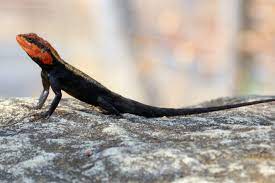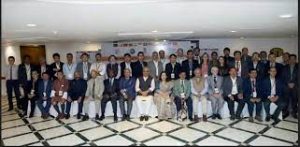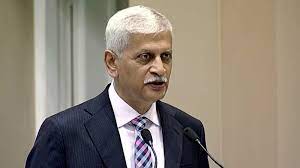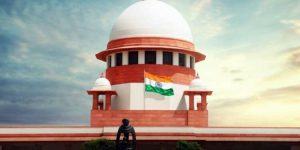Today Current Affairs: 12th August 2022 for UPSC IAS exams, State PSC exams, SSC CGL, State SSC, RRB, Railways, Banking Exam & IBPS, etc
Table of Contents
Blue Bonds:

SEBI has proposed the ‘blue bonds’ for sustainable finance
Blue bond:
- It will be a debt instrument to support investments in healthy oceans and blue economies (i.e. use of ocean resources for economic growth)- sustainable exploitation of ocean resources, fishing, and extracting renewable energy.
- It will catalyse progress towards SDG 14 (Life Below Water)
- UN Decade of Ocean Science for sustainable development (2021-2030)
- First Blue Bond: the Republic of Seychelles, in 2018, was the first to come with a sovereign blue bond.
- Other similar types of bonds: Green Bond : used to fund projects that have positive environmental and/or climate benefits
New START Treaty:

Russia suspended United Stated of America’s on-site inspections under New START Treaty with Washington due to Western sanctions and coronavirus infections.
- New START (Strategic Arms Reduction Treaty) was the last remaining arms reduction pact between the former Cold War rivals and caps to 1,550 the number of nuclear warheads that can be deployed by Russia and United States of America.
- It entered into force on 5th February, 2011.
- It continues the bipartisan process of verifiably reducing U.S. and Russian strategic nuclear arsenals by limiting both sides to 700 strategic launchers and 1,550 operational warheads.
- Its duration was for ten years that is till 2021, but it was extended by five more years till 2026.
Peninsular Rock Agama:

A study has been carried out by researchers from Indian Institute of Science (IISc), Bengaluru to understand several environmental factors (including urbanisation) that could affect the presence of the Peninsular Rock Agama/ South Indian Rock Agama.
- The Peninsular Rock Agama (Psammophilus dorsalis) which is a type of garden lizard has a strong presence in southern India.
- This lizard is a large animal, strikingly coloured in orange and black.
- They do not generate their own body heat, so they need to seek warmth from external sources like a warm rock or a sunny spot on the wall.
- It is majorly found in India (Asia).
- Indian states of Tamil Nadu, Chhattisgarh, Kerala, Andhra Pradesh, Karnataka, Bihar hosts the population of the lizard.
- Habitat: It belongs to the Precocial Species.
- Precocial species are those in which the young are relatively mature and mobile from the moment of birth or hatching.
- Protection Status:
- IUCN Red List: Least Concern
Gold Exchange Traded Funds:

In July 2022, Gold Exchange Traded Funds (ETFs) witnessed a net outflow of Rs 457 crore as investors parked their money in other asset classes as part of their portfolio rebalancing strategy.
- This was in comparison to a net inflow of Rs 135 crore in June 2022.
- Gold Exchange Traded Funds which aims to track the domestic physical gold price, are passive investment instruments that are based on gold prices and invest in gold bullion.
- Gold ETFs are units representing physical gold which may be in paper or dematerialised form.
- One gold ETF unit is equal to 1 gram of gold and is backed by physical gold of very high purity.
- They combine the flexibility of stock investment and the simplicity of gold investments.
- There is complete transparency on the holdings of an ETF.
- Gold ETFs have much lower expenses as compared to physical gold investments.
- No wealth tax, no security transaction tax, no VAT and no sales tax is levied on ETFs.
- There is no fear of theft as ETFs are safe and secure as units held in Demat Account of the holder.
Amendments To Biodiversity Bill, 2021:

A Joint Parliamentary Committee (JPC) that examined the Biological Diversity (Amendment) Bill 2021, has submitted its suggestions on the Bill.
- The JPC has accepted several amendments made by the Ministry of Environment & Climate Change (MoEFCC).
- The Biological Diversity Act, 2002 (BDA) was enacted to provide for the conservation of biological diversity, sustainable use of its components, and fair and equitable sharing of the benefits arising out of the use of biological resources and traditional knowledge.
- The Act prohibits any person or organisation from obtaining any biological resource, occurring in India for its research or commercial utilisation, without prior approval from the National Biodiversity Authority.
- The act envisaged a three-tier structure to regulate the access to biological resources:
- The National Biodiversity Authority (NBA)
- The State Biodiversity Boards (SBBs)
- The Biodiversity Management Committees (BMCs) (at local level)
- The act stipulates all offences under it as cognizable and non-bailable.
Amendments Made in Biodiversity Bill 2021:
- Boosting Indian Medicine System: It seeks to give a fillip to “Indian system of medicine”, and facilitate fast-tracking of research, patent application process, transfer of research results while utilising the biological resources available in India.
- It seeks to empower local communities to be able to utilise resources, particularly of medicinal value, such as seeds.
- The Bill looks to encourage farmers to increase cultivation of medicinal plants.
- These objectives to be achieved without compromising the objectives of the United Nation Convention on Biological Diversity.
- Decriminalising Certain Provisions: It seeks to decriminalise certain provisions in the chain of biological resources.
- These changes were brought in consonance with India’s ratification of Nagoya Protocol (Access to generic resources and the fair and equitable sharing of benefits arising from their utilisation) in 2012.
- Allowing Foreign Investments: It also allows for foreign investment in research into biodiversity.
- However, this investment will necessarily have to be made through Indian companies involved in biodiversity research.
- For foreign entities approval from the National Biodiversity Authority is necessary.
- Exempting AYUSH Practitioners: The Bill seeks to exempt registered AYUSH medical practitioners and people accessing codified traditional knowledge, among others, from giving prior intimation to State biodiversity boards for accessing biological resources for certain purposes.
Pre-Summit Meeting Of Tiger Range Countries:

India has hosted the Pre-Summit meeting of Tiger Range Countries (TRCs).
- The Tiger Range Countries Summit is scheduled to be held at Vladivostok, Russia on 5th September 2022.
- In January 2022, the 4th Asia Ministerial Conference on Tiger conservation was held.
- India’s National Tiger Conservation Authority has also decided to introduce guidelines for the reintroduction of tigers that can be used by other Tiger Range Countries.
Highlights of the Meeting:
- The meeting was attended by 12 tiger range countries except for China and Indonesia.
- There are 13 Tiger Range Countries (TRC): India, Bangladesh, Bhutan, Cambodia, Lao PDR (People’s Democratic Republic), Malaysia, Myanmar, Nepal, Russia, Thailand, Viet Nam, China and Indonesia.
- India is committed to bringing all potential tiger habitats within the country under the tiger reserve network.
- The meeting aims to finalise the declaration on tiger conservation to be adopted at the Summit.
Serena Williams : Winner Of 23 Grand Slam Titles

American tennis legend Serena Williams, the winner of 23 Grand Slam titles, has announced that she will retire from professional tennis.
- She has won 23 Grand Slam singles titles, the most by any player in the Open Era, and the second-most of all time (behind Margaret Court’s 24).
- Serena has also won 73 WTA titles overall, including all four Slams at least three times, 39 combined major titles in singles, doubles and mixed doubles, 14 major doubles titles with sister Venus, four Olympic gold medals in singles and doubles 319 weeks at the top of the world rankings.
Asian Regional Forum:

The Election Commission of India will be hosting a virtual meet of the ‘Asian Regional Forum’ on the theme “Making our Elections Inclusive, Accessible and Participative” at Nirvachan Sadan on August 11, 2022.
- This Regional Forum meet is precursor to the “Global Summit for Democracy” to be hosted by the National Electoral Institute of Mexico in the coming month.
- As part of this ‘Global Summit for Democracy’, five Regional Forums namely Africa, America, Asia, Europe, and countries of the Arab States have been created.
- India is hosting the Asian Regional Forum meet of the EMBs.
- The meet will have participation from Election Management Bodies (EMBs) of Mexico, Mauritius, Philippines, Nepal, Uzbekistan, Maldives and Representatives from International IDEA, Association of World Election Bodies (A-WEB) and International Foundation for Electoral Systems (IFES).
- As part of this ‘Global Summit for Democracy’, five Regional Forums namely Africa, America, Asia, Europe, and countries of the Arab States have been created. India is hosting the Asian Regional Forum meet of the EMBs.
Justice Uday Umesh Lalit : 49th Chief Justice Of India

Justice Uday Umesh Lalit was appointed the 49th Chief Justice of India (CJI) after President Droupadi Murmu signed his warrant of appointment.
- Justice Lalit will assume charge on August 27, a day after Justice N.V. Ramana demits office as the CJI.
- Justice Lalit will have a brief tenure as he will demit office on November 8 after holding the charge as the CJI for a little under three months.
- Justice Lalit will be the second CJI who was directly elevated to the apex court Bench from the Bar.
- Justice S.M. Sikri was the first lawyer to be elevated directly to the top court Bench in March 1964 and went on to become the 13th CJI in January 1971.
- While Supreme Court judges retire on attaining the age of 65, judges of the 25 High Courts superannuate at the age of 62.
- Justice Lalit has been part of several landmark judgments, including the one which held the practice of divorce through instant triple talaq among Muslims illegal and unconstitutional.
- Before his elevation as a judge, he was appointed a special public prosecutor for the CBI to conduct trial in the 2G spectrum allocation case.
- Starting out at the Bombay High Court, he shifted his practice to Delhi in January 1986, and in April 2004, he was designated as a senior advocate by the apex court.
- He was appointed a judge of the Supreme Court on August 13, 2014.
Centre Releases ₹1.16 Lakh Crores To States:

The Centre released over ₹1.16 lakh crore to the States, equivalent to two monthly instalments of tax devolution, to help front-load State governments’ capital spending abilities in this financial year.
- Coming soon after the expiry of the assured Goods and Services Tax (GST) compensation to States from this July, economists expect the move to give the States twice the monthly share of net proceeds of Union taxes and duties for August to bolster their cash flows and nudge them into planning and executing capital expenditure (capex) outlays.
- The development assumes significance as some Chief Ministers raised concerns about their dwindling resources and sought more funds from the Centre through extension of the GST compensation period and a higher share in the divisible pool of taxes, at NITI Aayog’s Governing Council meeting chaired by Prime Minister Narendra Modi on August 7.
- As against a “normal monthly devolution” of ₹58,332.86 crore, the Finance Ministry said ₹1,16,665.75 crore had been released “in line with the commitment of the Government of India to strengthen the hands of States to accelerate their capital and developmental expenditure”.
Extension Of Pradhan Mantri Awas Yojana Till 2024:

The union cabinet has approved the extension of the flagship urban housing scheme — Pradhan Mantri Awas Yojana (Urban) — till December 31, 2024.
- PMAY Launched in 2015, the original deadline for the scheme aimed at providing affordable housing with incentives was March 2022.
- It was launched with the aim to achieve housing for all by 2022.
- According to data on the PMAY site, a total of 12.26 million houses have been sanctioned so far, out of which 61.77 lakh houses have been completed.
- In December 2021, the cabinet approved the extension of the rural housing scheme, PMAY-Gramin (Rural) till March 2024.
- The Urban scheme is being implemented through four verticals:
- Beneficiary-Led Construction (BLC)
- Affordable Housing in Partnership (AHP)
- In-situ Slum Redevelopment (ISSR)
- Credit Linked Subsidy Scheme (CLSS).
Universal Postal Union:

The Union Cabinet has approved the ratification of amendments to the Constitution of the Universal Postal Union (UPU) as contained in the Eleventh Additional Protocol to the Constitution signed during the 27th Congress of the Universal Postal Union held at Abidjan (Cote d’Ivoire) from 9-27 August, 2021.
- The approval enables the Department of Posts, Government of India to have the “Instrument of Ratification” signed by the Hon’ble President of India and have the same deposited with the Director General of the International Bureau of the Universal Postal Union.
- This would fulfil the obligations arising from Article 25 and 30 of the UPU Constitution which provides for ratification of the amendments to the Constitution adopted by a Congress as soon as possible by the member countries.
- The Universal Postal Union (UPU) established by the Treaty of Bern of 1874, is a specialized agency of the United Nations (UN) that coordinates postal policies among member nations, in addition to the worldwide postal system. The UPU’s headquarters are located in Bern, Switzerland.
U.S. Bill On Climate Action:

The S. Senate approved a Bill titled the Inflation Reduction Act (IRA) 2022 with a focus on climate, healthcare and tax provisions to address inflation.
- The bill is a scaled-down version of President Biden’s Build Back Better Act (BBBA), which failed to get approval from the Senate.
Climate change provisions:
- Package for the clean energy transition: The Bill marks the largest American investment aimed toward making the U.S. a leader in clean energy.
- It includes packages worth $369 billion for the clean energy transition.
- The Bill provides significant investment in renewable energy through heavy tax credits for wind and solar energy projects and electric vehicles.
- Tax deduction to low and middle-income households: It provides a tax deduction to low and middle-income households to go electric and seeks to lower the energy bills of American households.
- Bolster domestic production: It also aims to bolster the domestic production of heat pumps and critical minerals.
Tax on large and profitable companies to meet the green investment - Methane fee: It also imposes a fee on methane leaks from oil and gas drilling.
- At the same time, the Bill also aims at more investments in fossil fuels.
- Expand oil and gas drilling: It seeks to expand oil and gas drilling, with the federal government offering land for onshore and offshore drilling with the prerequisite that the entity will develop renewable energy.
- Thus, it handcuffs the expansion of oil and gas with renewable energy development.
Recognition Of Minorities At The District level:

The Supreme court has pronounced that recognition of minorities at the district level is contrary to law.
- SC in Kerela Education Bill Case, 1958 had rejected that minorities be identified at the block or district level.
SC in 2008 had said that Linguistic and religious minorities are determined by taking the state as a unit and not at the national level. - Currently, only those communities notified under section 2(c) of the NCM (National Commission for Minorities) Act, 1992, by the central government are regarded as a minority.
- The Muslims, Christians, Sikhs, Buddhists, Zoroastrians (Parsis) and Jains (in 2014) have been notified as minority communities.
- Constitution doesn’t define the word ‘minorities’
- Article 29 (Right to conserve distinct language, script and culture): It grants protection to both religious as well as linguistic minorities. Its scope is not necessarily restricted to minorities only.
- Article 30 (Right to establish and administer educational institutions of their choice): The protection under it is confined only to minorities (religious or linguistic).
- Article 350-B (provides for a Special Officer for Linguistic Minorities appointed by the President of India)




